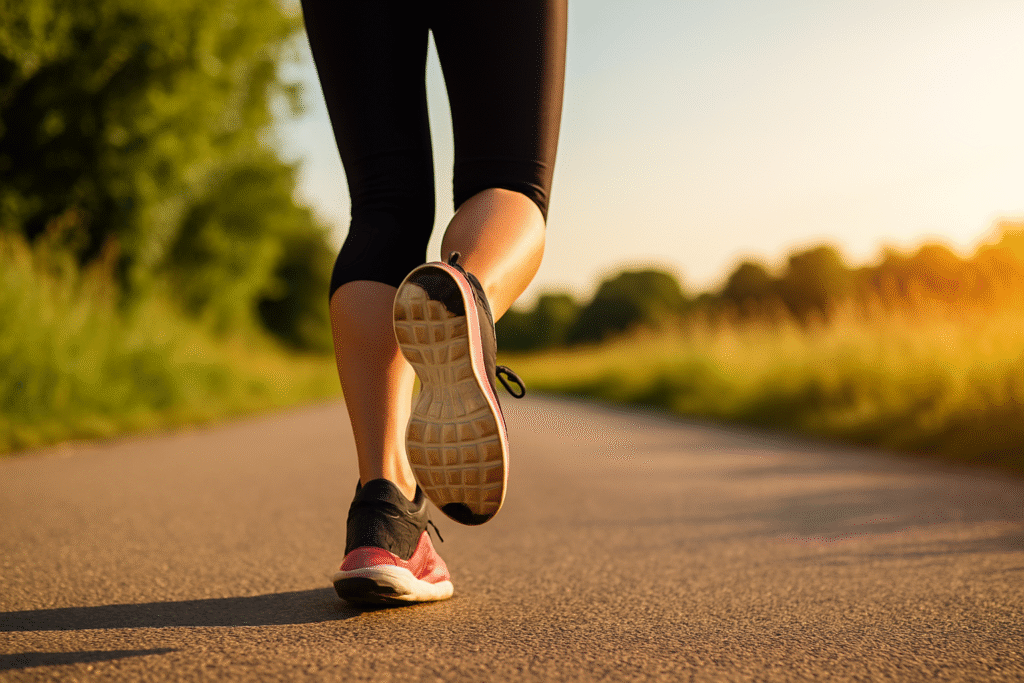- The Physical Benefits: Your Heart, Lungs, and Waistline Will Thank You
- The Mental Benefits: More Than Just a Workout
- Getting Started: Tips for New Runners
- Why Rest Days Matter (And Why I Learned This the Hard Way)
- The Right Shoes Make a Big Difference
- Staying Consistent: The Secret to Long-Term Success
- Final Thoughts
- Your Next Read
Running is one of those simple habits that can completely change your life. Whether you’re looking to improve your health, clear your mind, or just try something new, running ticks all the boxes. I remember when I first started—I wasn’t sure I’d stick with it. But over time, it became something I genuinely enjoy and rely on.
If you’re new to running or thinking about giving it a shot, here’s why it’s worth it—and how to get started the right way.
The Physical Benefits: Your Heart, Lungs, and Waistline Will Thank You
Running is a powerhouse when it comes to improving cardiovascular health. It boosts heart function, increases lung capacity, and helps your body circulate blood more efficiently. It also plays a major role in regulating blood pressure and reducing the risk of heart disease. You don’t have to run fast or far to feel these benefits—consistency matters more than intensity at the beginning.
Another reason many people turn to running is weight management. It burns calories quickly and helps reduce body fat while maintaining lean muscle. Personally, this was a big motivator for me when I first started. Over time, running helped me feel more in control of my body and energy levels. It even revs up your metabolism so you’re still burning calories after you’ve finished your run.

The Mental Benefits: More Than Just a Workout
Running isn’t just good for your body—it’s a major mood booster too. I used to need music or a podcast every time I ran. Now, I often leave the earbuds at home and just focus on my breath. It’s become a form of mindfulness for me, a way to unplug and clear my head.
That’s no coincidence. Running releases endorphins, those feel-good chemicals that can reduce anxiety, lift your mood, and help you feel more grounded. Over time, it can even help build resilience to stress. If your mental health needs a bit of TLC (whose doesn’t?), running is a natural and effective way to support it.
Getting Started: Tips for New Runners
Starting anything new can feel overwhelming—but the key with running is to start small and build gradually. Here’s what worked for me, and what I’d recommend to anyone just beginning their running journey.
1. Set Realistic Goals
In the beginning, don’t worry about pace or distance. Your first goal might just be running for 30 seconds without stopping—and that’s completely okay. I remember how proud I was the first time I ran 500 metres without needing to walk. That moment was a turning point for me, and it laid the foundation for everything that followed.
2. Use the Walk/Run Method
This is a game-changer for beginners. Try something like 30 seconds of running followed by 90 seconds of walking. Gradually increase the run time as you get stronger. There’s no one-size-fits-all formula—listen to your body and progress at your own pace. It keeps things doable and helps prevent injury too.
3. Listen to Your Body
Sore muscles? Fatigue that lingers? That’s your body talking. Pay attention. Rest when you need to, and don’t feel guilty about it. Progress isn’t linear, and skipping a run to recover is often smarter than pushing through pain.
4. Follow the 10% Rule
To avoid injury, try not to increase your total weekly distance or time by more than 10%. Trust me, slow and steady wins this race.
Why Rest Days Matter (And Why I Learned This the Hard Way)
At first, I thought I had to run every day to get better. Spoiler alert: I was wrong. Rest days are just as important as your running days. They give your muscles, joints, and even your mind time to recover and grow stronger. For any individual embarking on a running journey, recognising the vital role of rest and recovery is essential for long-term success.
If you skip rest, you risk overtraining—which can lead to burnout or injury. Letting your body rest isn’t slacking—it’s smart. And if you still want to move, try some cross-training like swimming or cycling, or simply stretch it out. It all helps. Incorporating these post-run can enhance flexibility, promote circulation, and minimise muscle soreness.
The Right Shoes Make a Big Difference
Good shoes are a must. They protect your feet, support your stride, and help prevent injury. Visit a running store if you can—they can assess your gait (manner of walking) and recommend the best pair for you. Take the time to walk or jog in a few options before committing. The right shoes will make your runs more comfortable and more enjoyable.

Staying Consistent: The Secret to Long-Term Success
Consistency beats intensity every time—especially in the beginning. Set a schedule that works for you and stick to it. It could be two runs a week or three shorter ones. Whatever it is, make it sustainable.
Tracking your progress (even if it’s just mentally) can boost motivation. Celebrate those small wins and look back on how far you’ve come. That’s where the real inspiration comes from.
Final Thoughts
If you’re thinking about starting to run, I say go for it. Start where you are, run at your own pace, and don’t worry about what anyone else is doing. Running has helped me feel stronger, both physically and mentally, and I truly believe it can do the same for you.
So grab those shoes, step outside, and take that first step. You’ve got this.
Your Next Read
Feel free to leave any starter tips that helped you start your running journey below:

